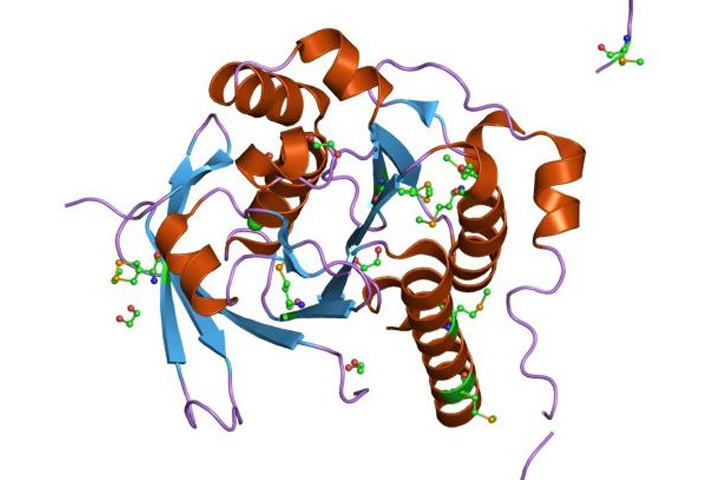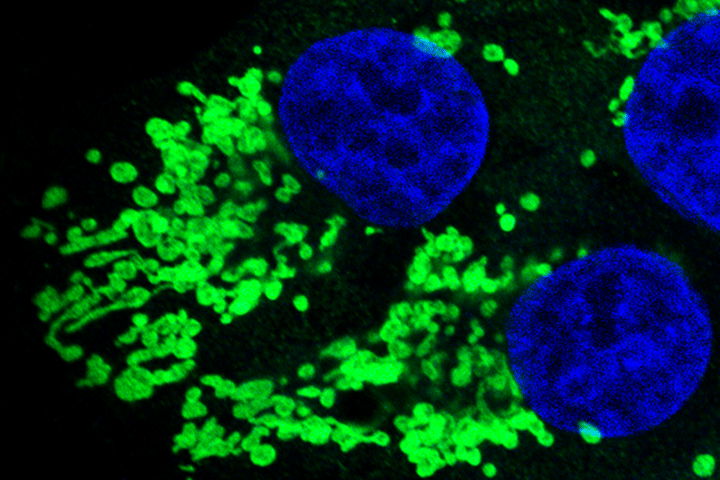A Maintenance Trial for Patients with BRCA or PALB2 Mutations

Jawahar Swaminathan and MSD staff at the European Bioinformatics Institute; Wikimedia Commons
Can a PARP inhibitor be an effective maintenance treatment for patients with a BRCA1, BRCA2, or PALB2 mutation whose tumors have stabilized on chemotherapy?
People with pancreatic cancer who carry a mutation in BRCA1, BRCA2, or PALB2 are more likely to respond well to platinum-containing chemotherapy, such as FOLFIRINOX, FOLFOX, or cisplatin/gemcitabine. However, the toxic side effects of these drugs can become overwhelming even though the chemotherapy continues to control the cancer. PARP inhibitors are also effective for people with those mutations, so in this clinical trial researchers are testing whether these patients can be effectively maintained on the PARP inhibitor rucaparib.
How PARP Inhibitors Work for People with BRCA or PALB2 Mutations
The PARP pathway repairs single-stranded DNA breaks. When a PARP inhibitor interrupts this process, the single-stranded breaks become double-stranded breaks. Tumors that are caused by mutations in BRCA1, BRCA2, or PALB2 suffer from an inability to repair double-stranded DNA breaks. Therefore, a PARP inhibitor leads to a piling-up of double stranded breaks in these cancers, leading to death of the cancer cells.
Why Is this Study Being Done?
PARP inhibitors such as rucaparib have been shown to be effective in patients with BRCA1 or BRCA2 mutations who have breast cancer, ovarian cancer, prostate cancer, and pancreatic cancer. In patients with pancreatic cancer who have responded well to initial chemotherapy, there is a need for maintenance pills that are more tolerable and keep the cancer controlled while improving quality of life.
In order to qualify for the trial, patients must have a BRCA1, BRCA2, or PALB2 mutation identified either from a blood test (germline) or from a tumor test (somatic). Patients must have stable disease on platinum-based chemotherapy for at least four months and cannot have progression of their cancer on this treatment. All participants will receive treatment with the rucaparib pill.
We encourage you to consult your physicians for clinical trials that might be right for you. The website ClinicalTrials.gov provides more detail about this trial as well as many others. You can visit the Let’s Win Trial Finder for a listing of all active pancreatic cancer clinical trials.
This trial is active, but currently not recruiting participants.






